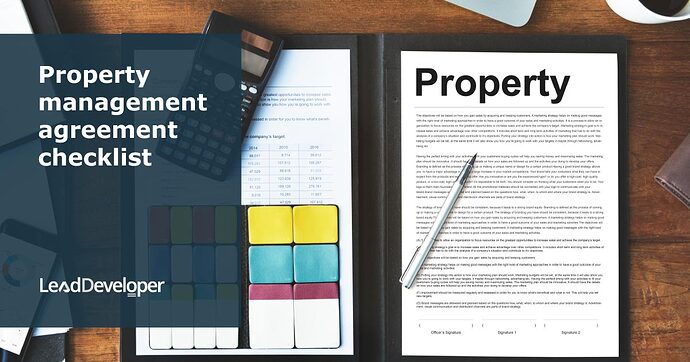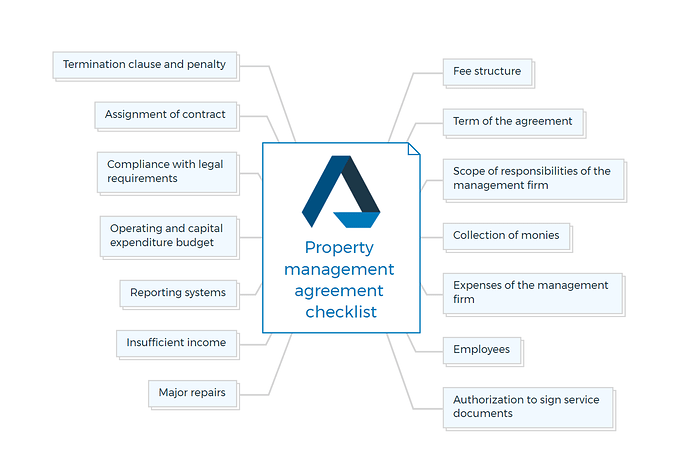1. Fee structure
Think of the fee structure as how the management company gets paid. They usually get a part of the money collected from rent. This happens every month. Initially, when finding tenants, they might agree on a fixed amount instead of a percentage. But once they’ve gathered a certain amount of rent, they switch back to getting a percentage. The percentage isn’t the same for all kinds of properties:
- Apartments: 3.5% to 6.0% of rent collected
- Office buildings: 3.0% to 5.0% of rent collected
- Retail spaces: 3.0% to 5.0% of rent collected
- Industrial properties: 3.0% to 5.0% of rent collected
- Mini-warehouses: 4.0% to 6.0% of rent collected
- Lodging places: 3.0% to 7.0% of rent collected
2. Term of the agreement
This part decides how long the agreement is valid. It can be a short time, like a month or go all the way to more than five years.
- Clearly state the start and end dates of the agreement.
- Include any provisions for renewal or termination of the agreement.
You are missing out if you haven’t yet subscribed to our YouTube channel.
3. Scope of responsibilities of the management firm
It’s like listing all the jobs the management company needs to do. This is important to avoid any arguments later.
List the specific duties and responsibilities of the management firm, including but not limited to:
- Tenant screening and placement.
- Rent collection and arrears management.
- Maintenance and repairs.
- Lease enforcement.
- Property inspections.
- Handling tenant complaints and inquiries.
4. Collection of monies
This section explains who’s in charge of gathering rent and where the money will go.
5. Expenses of the management firm
This bit tells you who pays for what. Some bills are the property owner’s, and some are the management firm’s responsibility.
6. Employees
This part decides who’s working for the management company and who’s working for the property owner.
- Indicate whether the management firm will employ on-site staff or subcontract services.
- Specify the qualifications, responsibilities, and supervision of any on-site staff.
7. Authorization to sign service documents
This is about deciding who can sign contracts for services.
8. Major repairs
This is about what the management company does when there’s a big repair job. They might need permission from the owner if it costs a lot.
9. Insufficient income
This part talks about how the property owner handles it if there’s not enough money from the rent.
10. Reporting systems
It’s about saying what reports the management company needs to give. These reports might be about money or how things are going with the property.
11. Operating and capital expenditure budget
This part decides when the budgets for spending money on regular stuff and big projects are made and updated.
12. Compliance with legal requirements
This means the management company has to follow all the rules and laws, like local laws and federal laws.
13. Assignment of contract
This part concerns whether the management company can give their job to someone else.
14. Termination clause and penalty
Here, it’s about ending the agreement early. If someone wants to stop working together, it talks about what happens and if there’s a fee for it. It also says what both sides must do after they decide to stop.


